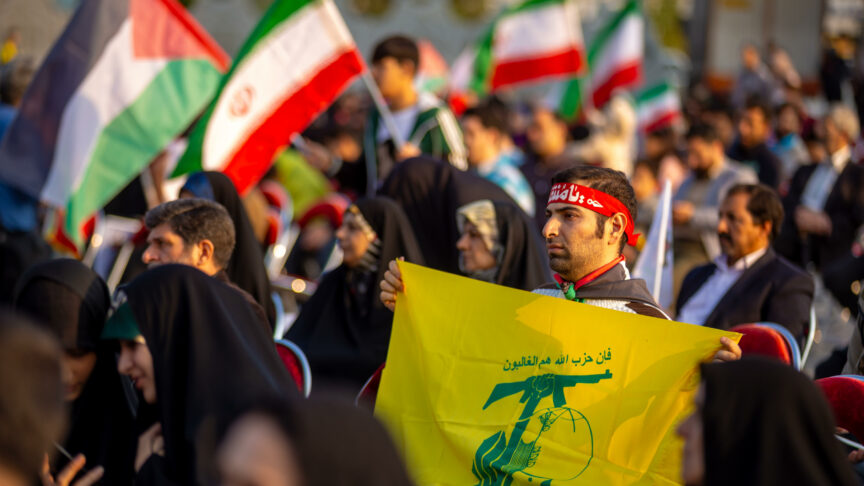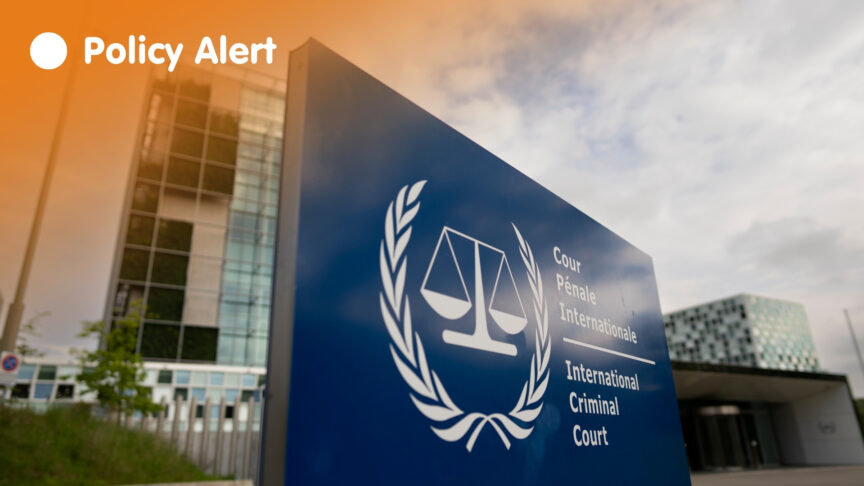The march of Haftar: Why Europeans should stand in the way of the Libyan National Army
As Field Marshal Haftar's forces advance towards Tripoli, Libya teeters on the brink of yet another civil war. Europe can no longer idly stand by.
Field Marshal Haftar, Libya’s latest and putatively greatest strongman, is on the move again in Libya. On 3 April, his Libyan National Army (LNA) began expanding westwards along Libya’s coastal road through the Nafusa mountains to the town of Gharyan. The LNA’s rapid capture of the town was easy, but nonetheless an important step on the road to the Libyan capital of Tripoli – an advance Haftar ordered the very next day. For many, Haftar’s momentum means he is on the brink of realising his dream of unifying the country under this control.
Haftar is not as strong as he appears and cannot in the end deliver stability to Libya
But Haftar’s day has not yet arrived. Unsurprisingly, the LNA’s advance has provoked a counter-mobilisation from western Libyan forces that had already banded together in preparation for such an escalation. The UN-backed Government of National Accord (GNA) is readying what air and manpower it has to defend of the capital. The response of the city of Misrata, which has already pledged troops to help defend the capital, will be the key factor in the GNA’s ability to protect its position.
All this means that Libya now teeters on the brink of another civil war. The UN has lost all control of events – UN Secretary General Antonio Guterres landed in Tripoli also on 3 April, but given recent events, his effort at shuttle diplomacy between Haftar and the other Libyan factions already seems hopeless. Worse, despite appearances, Haftar does not have the power to bring meaningful stability to the country. Europeans urgently need to step up their own response to Haftar’s march. Together, they have ability to stand in the way of the LNA and help preserve the fragile stability in Libya. The only question is whether they will use that capability.
Haftar’s Plan
Haftar’s belligerence is due in no small part to the silence of the international community during his previous operations, including his expansion into south Libya. Most European governments. led by France, have long believed that a new political process can be built around the fickle field marshal and sanctioned through the UN’s National Conference. So, they have mostly said nothing as he has slowly expanded his operations.
Haftar’s march was preceded by attempts in the UAE to engineer a deal between Haftar and President Serraj of the GNA that would have provided Haftar with a legitimate position of authority. But the terms were too imbalanced in Haftar’s favour and would have allowed Haftar to seize control of Libya through the back door.
With that deal as good as dead, Haftar has taken the military approach towards getting his way. He is attempting to pressure Libyan actors and the UN into accepting his appointment as Supreme Commander of the Libyan army. Much like his previous expansion into southern Libya, Haftar has sought to use a mixture of the imminent threat of war, and various promises of a future role within his order to try to co-opt enough sides to enable him to conquer territory without a fight. This time, however, local communities seem to fear rather than welcome his approach, while military centres such as Misrata and Zintan are mobilizing to oppose him. This operation may be very different than Haftar’s experience in the south.
Appeasing Haftar
Europeans need to re-evaluate their approach to Haftar given recent events. Europeans have direct security and energy related interests in Libya’s stability that Haftar’s recent efforts put at risk. Their immediate priority should be to facilitate a ceasefire and a peaceful National Conference process that can produce a political roadmap for building stability in Libya. Such a roadmap would offer Haftar a negotiated route to participation in the Libyan government rather than allowing him to dictate terms.
The key point to understand is that Haftar is not as strong as he appears and cannot in the end deliver stability to Libya. He cannot make good on all the promises he has made either to his Libyan counterparts or to the international partners to whom he has promised preferential access and authoritarian stability. Despite the effective branding, Haftar is not actually in control of an army in the traditional sense of the term. The LNA is a shaky alliance between various militias of tribal, religious and local interests around a core of more traditional forces (who themselves are highly compromised by Salafist components.)
Haftar’s expansions to-date have relied on co-opting new local forces into the LNA franchise in what appears to be the military equivalent of a Ponzi scheme. Keeping the LNA functional requires continuous expansion and income that is driven towards the operation’s core and leadership. At this point, his forces are overextended, his finances stretched, and if he’s forced to fight, he may be more fragile than many realise. Indeed, his recent escalation was, in part, driven by these vulnerabilities and his need for quick success.
In the end, Haftar has no unifying ideology on which to build a legitimate system of governance and no army to supplant the existing patchwork of militias and local forces controlling Libya. So, it is unlikely that any rule he concocts will be stable for long after his expansion ceases.
European Leverage
All these myriad weaknesses should be used as leverage to force him into a deal. The National Conference still faces many threats, and may not produce what is needed, but it is the best hope for jump-starting some form of more stable transition. If the National Conference can continue, it could produce a less compromised framework that Serraj could accept and which could accommodate Haftar. Such a consensual process still has better prospects of creating stability in Libya than simple military might.
Europeans and the US (where Haftar remains a citizen) should ensure that the threat in their joint statement to hold accountable “any Libyan faction that precipitates further civil conflict” is not considered an empty one. Haftar is vulnerable to such efforts. International actors have on previous occasions proven capable of forcing him to back down. In both 2014 and 2018, his efforts to sell oil outside of the approved national channels were effectively shut down by combined European and US efforts. Haftar must be forced to accept both an immediate ceasefire to stave off the prospect of civil war, but also to preserve the legitimacy of the National Conference.
Haftar has often made his grandiose ambitions clear over the previous four years, but those years have also shown that even if he realises them it is far more likely to result in further conflict than stability. If Haftar remains free to continue escalating the situation and dictating the political process without any meaningful response from international actors, then renewed violence seems almost inevitable. This would set Libya’s transition back by years and create a new body of destabilising threats to the region and across the Mediterranean.
The European Council on Foreign Relations does not take collective positions. ECFR publications only represent the views of their individual authors.


